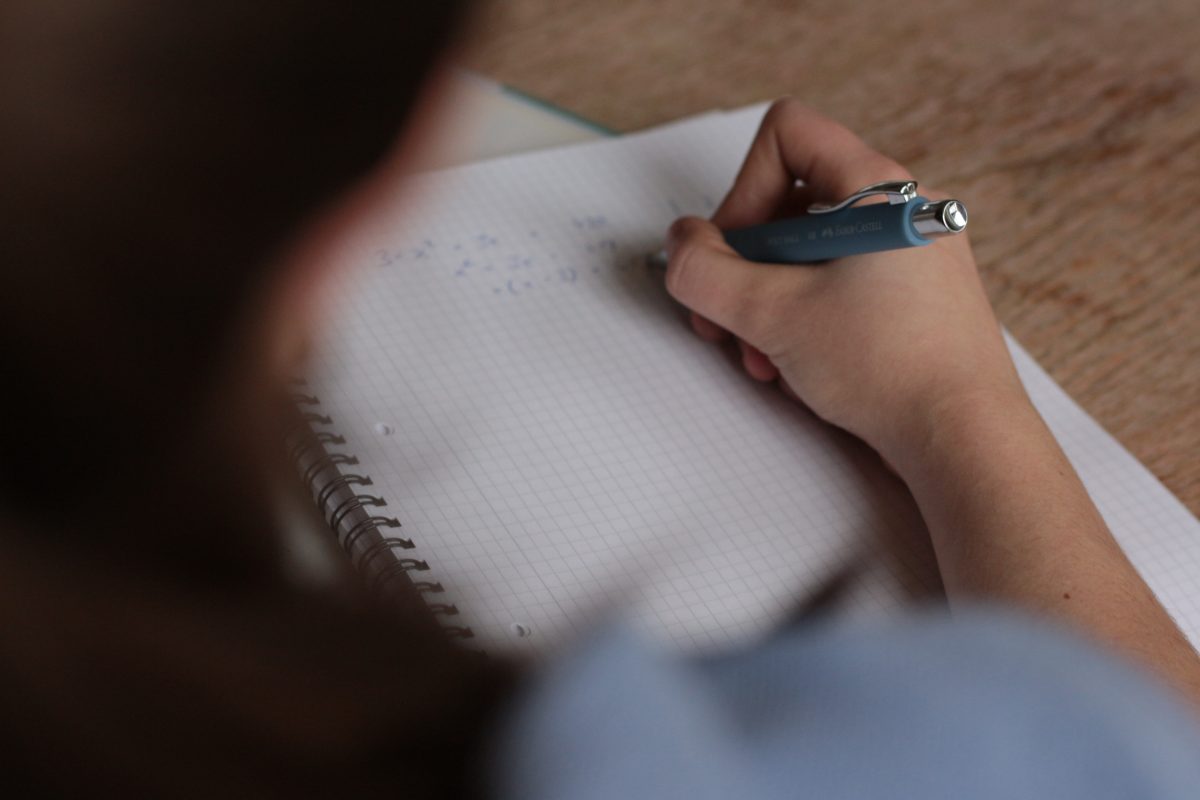In the year 2012, when many believed the then-interpretation of the Mayan calendars’ abrupt end date to be a prediction of the end of times, I was finally diagnosed, officially, with Attention Deficit Hyperactivity Disorder. My family learned that teachers are legally not allowed to tell parents to request an educational evaluation. It took my family until third grade when they noticed that I seldom had birthday party or playdate invitations to realize that something was amiss and they demanded an educational evaluation that resulted with ADHD..
I was eight years old at the time, attending Booth Hill Elementary School as a third-grader. About halfway through the school year, after consulting numerous medical journals, reports, and studies on the positive results effected by the combination of ADHD medication with talk therapy rather than talk therapy alone on children with this diagnosis, my mother, a family physician, decided that she would go against her Ecuadorian culture upbringing (despite being a first generation American) and let me begin ADHD meds in addition to talk therapy as treatment for ADHD.
According to the DSM ADHD is present when the following criteria are met:
“People with ADHD show a persistent pattern of inattention and/or hyperactivity-impulsivity that interferes with functioning and/or development:
- Inattention: Six or more symptoms of inattention for children up to age 16 years, or five or more for adolescents age 17 years and older and adults; symptoms of inattention have been present for at least 6 months, and they are inappropriate for developmental level:
- Often fails to give close attention to details or makes careless mistakes in schoolwork, at work, or with other activities.
- Often has trouble holding attention on tasks or play activities.
- Often does not seem to listen when spoken to directly.
- Often does not follow through on instructions and fails to finish schoolwork, chores, or duties in the workplace (e.g., loses focus, side-tracked).
- Often has trouble organizing tasks and activities.
- Often avoids, dislikes, or is reluctant to do tasks that require mental effort over a long period of time (such as schoolwork or homework).
- Often loses things necessary for tasks and activities (e.g. school materials, pencils, books, tools, wallets, keys, paperwork, eyeglasses, mobile telephones).
- Is often easily distracted
- Is often forgetful in daily activities.
- Hyperactivity and Impulsivity: Six or more symptoms of hyperactivity-impulsivity for children up to age 16 years, or five or more for adolescents age 17 years and older and adults; symptoms of hyperactivity-impulsivity have been present for at least 6 months to the extent that is disruptive and inappropriate for the person’s developmental level:
-
- Often fidgets with or taps hands or feet, or squirms in seat.
- Often leaves seat in situations when remaining seated is expected.
- Often runs about or climbs in situations where it is not appropriate (adolescents or adults may be limited to feeling restless).
- Often unable to play or take part in leisure activities quietly.
- Is often “on the go” acting as if “driven by a motor”.
- Often talks excessively.
- Often blurts out an answer before a question has been completed.
- Often has trouble waiting their turn.
- Often interrupts or intrudes on others (e.g., butts into conversations or games)
In addition, the following conditions must be met:
- Several inattentive or hyperactive-impulsive symptoms were present before age 12 years.
- Several symptoms are present in two or more settings, (such as at home, school or work; with friends or relatives; in other activities).
- There is clear evidence that the symptoms interfere with, or reduce the quality of, social, school, or work functioning.
- The symptoms are not better explained by another mental disorder (such as a mood disorder, anxiety disorder, dissociative disorder, or personality disorder). The symptoms do not happen only during the course of schizophrenia or another psychotic disorder.
Based on the types of symptoms, three kinds (presentations) of ADHD can occur:
- Combined Presentation: if enough symptoms of both criteria inattention and hyperactivity-impulsivity were present for the past 6 months
- Predominantly Inattentive Presentation: if enough symptoms of inattention, but not hyperactivity-impulsivity, were present for the past six months
- Predominantly Hyperactive-Impulsive Presentation: if enough symptoms of hyperactivity-impulsivity, but not inattention, were present for the past six months.
Because symptoms can change over time, the presentation may change over time as well.” (1)(3)
Let me describe what schoolwork was like before beginning medications and still is once my meds wear off: absolute torture! I’ve heard ADHD described as running a marathon with boulders in your pockets. Of course you can still manage to pull off completion of the task but every step is so much harder than it has to be. For example, I remember so many nights where my Mom would lovingly sit next to me trying to keep me focused on the task at hand since she realized the moment she left I would begin to go down the rabbit hole of learning interesting science facts on the internet with no end in sight until her return. Those assignments seemed to not get completed until right before midnight. Many times, despite the imminent due date, such as the next day, even after all the work and extra time put in and sleep lost by both of us; I would invariably seem to purposely sabotage myself and forget to turn in the assignment costing me precious points, resulting in a lower grade. She always emphasized that she was certain I was a great writer; it’s just that it always took hours to collect my thoughts enough to get me to even start writing. Once I began, it would take some time to get me to stop. I would almost always completely forget to bring home assignments and when I did complete them, I would often forget to turn them in.. Everything took hours for me, all the activities of daily living such as bathing, dressing and even eating. One slice of pizza would take hours to eat and I love pizza! But I would get so distracted that I would have to heat it up in the microwave at least 2-3 times and so by the time I got around to earning it it would taste like cardboard.
Test-taking was the worst! It would take me a good 25-30 min just to settle in to start my test either because of anxiety or distractions from the nervous jitter of the other children or from the repetitive tapping of my own foot on the floor. By the time I could finally concentrate on what the first question was asking me, over half the testing time had gone by. Invariably, most of the questions were left unanswered. In the rare instance, I would finish a test in time, I would find out much too late (when the teacher returned my test with not an A) that there was a whole back of the test page I failed to answer because I never looked!
Once I began ADHD medication, it took a while to figure out which one would work for me. My fourth-grade teacher, Mrs. Devine noticed something was different right away saying “Michael has always been very polite and extremely intelligent but now it seems someone has taken his cover off and he shines more brightly.” Once accommodations began, my family still had to deal with more than one teacher who felt as if I’d been given an unfair advantage. They did not realize that what these accommodations were doing was leveling the playing field. I’ve heard ADHD described as running a marathon with boulders in your pockets. I completely agree.
The Americans with Disability Act was passed in 1990 and is a Civil Rights Law that prohibits discrimination based on disability. (2) Thanks to this law, there are accommodations offered to children with neurodiversity from elementary to high school and even college years. I have been very impressed with the University of Connecticut’s Center for Students with Disabilities and the provision of continuing educational accommodations from secondary school to college. This provision is invaluable to me as a neurodiverse student since it continues to help me learn how to work well and even succeed with my diagnosis. Hope this gives you a little better understanding of your neurodiverse peer.
Citations:
- CDC. (2018). Symptoms and diagnosis of ADHD. Centers for Disease Control and Prevention. https://www.cdc.gov/ncbddd/adhd/diagnosis.html
- 2010 ADA regulations. (2010). Ada.gov. https://www.ada.gov/2010_regs.html
- CDC. (2021, September 23). What Is ADHD? Centers for Disease Control and Prevention; CDC. https://www.cdc.gov/ncbddd/adhd/facts.html








